|
By Manuel Players: 1 Platforms: Nintendo Switch, XBox, PC I can't help but find it strange that I looked at a raising sim on the Nintendo Switch recently (Lair Land Story by the way!), and pointed out that the genre is very under-represented on consoles in the West. Then The World According to Girl shows up for review as if to challenge that notion specifically. While I'm sure that's not the case at all, I have to point out that this game is a very unique take on the genre. Taken directly from its eShop page, the game is described as a "deck-building roguelike caring game". While part of me is intrigued as to how all those different genres will come together, I can't help but feel that it's going to make for a complicated mess. I guess we're going to find that out today, as we're going to be taking a look at the Nintendo Switch version here. (It's also available on the XBox and on Steam.) We have a lot to cover, so let's get right into it! The World According to Girl has one of the most interesting plot setups I've ever seen, video game or otherwise. The game takes place over a hundred years in the future where humanity is on the verge of collapse. A series of natural disasters destroyed our power-reliant society, and the remnants of human civilization survives by using older vacuum tube-powered computers and devices. The powers that be have decided that the only way to save humanity is to ask the rest of the universe for help. Their plan is to send a representative into space to either contact an Earth-based space mission that launched before the disaster, or to contact aliens. Even weirder than that hope is that they think a single young girl is the perfect person for the job. Right or wrong, the project has found its Girl, and they now find that they have to raise her. An entire city was created in the middle of the wasteland to raise this single girl, and she's completely unaware of this fact. It's up to the player to guide Girl through seven years of her life, and hopefully to the point where the project succeeds. You'll be doing this guiding by taking on the role of The Commissioner, an employee of the project who does his best for Girl, even if he doesn't hold a lot of confidence regarding the project's success. The story of The World According to Girl unfolds from there, and it becomes far more than a simple story focused on raising a seemingly "perfect" Girl. I won't mention too much more regarding plot though, as I feel that it's the best aspect of the game. Even though Girl is the main character, you get to know a lot about The Commissioner and the various people behind the project, including the fact that The Commissioner is not alone in his doubts. Even though I personally think the story is extremely well-written, it can be a bit tiresome to have to go through it all again future playthroughs. There is a skip option for most scenes, but I'm not sure if it stops to show you things you've not seen before. Oddly, and this is the only time I've ever seen something like this in a game of this genre, there's a "No Story" option that you can select on any playthrough. While I understand it's included because the game can be enjoyed as a simple stat-based raising sim, I find it a bit strange that the developers would include it at all. Anyway, enough about the story for now, let's talk gameplay. Stats rule the day in The World According to Girl, and let's hope you're a fan of numbers. Each run of the game takes place over seven years, and each year is broken up into six seasons. This means you have a total of 42 turns to raise Girl into the savior of humanity. No small feat, but you do have help. Girl has four stats for you to keep track of: Kindness, Charm, Intelligence, and Vitality. Each of these stats are important, but don't worry if you find yourself letting a couple get far above the others. The end of each year sees Girl take what is called an "Abigail Test" to determine if she's progressing up to the project leaders' expectations. Your main goal is to pass these tests, so think of it like being back in school where end-of-year tests are the norm. There's more to talk about regarding the Tests, but we'll come back to them later. Stats go up in a couple ways, but the most important method is done by Girl taking part in random city life each season. The City is broken up into five areas: Residential, Park & Garden, Entertainment, Commercial, and Industrial. Each area has their own personnel working there that bestow their skills onto Girl if she visits them within the season, basically granting their stats onto Girl. That sounds easy enough, but this is where the RNG first pops up. You can't simply recruit the personnel you want, as they come to you each season in the form of randomly selected cards. You can perform an extra survey each season, but this costs points that can usually be put to better use elsewhere. Even if you manage to land the best available personnel for an area, Girl might choose to ignore them completely during some seasons. You actually have no direct control over what Girl does, and you can only influence her going to a location by "energizing" it. Energizing means you pump resources (points) into an area so that the personnel attract Girl to go there. This takes the in-game form of a percentage by each zone, which represents the likelihood of Girl going there that season. She can visit one zone a season, all the zones a season, or even none at all, it's all up to chance. Seeing as this directly affects stat growth, and you can never really ensure she's going to go to the "correct" zones, it makes for a very random gameplay experience overall. To make matters worse, if you energize a zone too much, you raise the City's Intensity Index. This number does a few things, but most importantly it raises the percentage of Exposure Risk. These random terms and numbers boil down to Girl becoming aware of what's going on, causing the Commissioner to change direction of the project and for Girl to lose a whole lot of stats gained. Even though the RNG seems heavy with the core stat building mechanics, there's still more to it. The second method of getting stats is through studying. This is mostly simple, as you simply choose a topic for each season that gives a set number to the relevant stat. The problem comes with the conversations that happen next. Lots of them are so esoteric, or have choices that feel no better than the others, that they might as well be random events. Thankfully these rarely cause much issue, but they can cause the Intensity Index to rise. Probably the worst thing that can happen during a season have to be emergencies and strikes. Emergencies are things like fire, storms, or other events that affect Girl's stat growth in some way. This can be things like a City area being closed, items not being able to be used, surveys not able to happen, and worst of all, personnel stats being halved or altered in some way. These happening too many times in a single year can tank a run as you really have to be on top of stat growth for each year's Abigail Test. Even if nothing is burning down or under threat from a solar flare, you still have to deal with issues regarding the City's personnel. If you've energized an area too many times, or if the RNG decides you're having it too easy, areas will ask for a seasonal break. This means you'll have to suspend their activities, and they sometimes come back the following season re-energized. If you choose to ignore their calls for a break, and sometimes you'll need to do exactly that, they can simply go on strike and force your hand. This can even lead to some personnel leaving, which just compounds the problem. I don't want to make it seem like it's a bad system, as I for one loved watching the stats and numbers go up and down, but it can be a bit off-putting for players to seemingly fight a battle against randomness itself. Also, the game doesn't do a good job explaining most of what I just covered as there is no in-game tutorial at all. You're given a bare bones explanation of the most basic aspects of the game, and thrown off the deep end. You actually have to go through menus in order to learn how to play the game, and that's not something one expects to do in 2024. There's one last aspect of gameplay I think we have to cover before we move on, and that's the Abigail Tests. Just in case you're wondering, I have no idea why they're called the Abigail Tests either. I don't think it's ever explained in-game, and I definitely missed it if it was. What I can tell you is that these tests cap off each in-game year, and failing to pass one means an instant Game Over. They operate sort of as a boss fight, and your weapon of choice is Girl's memories. Throughout the seasons you gain MP, or Memory Points, which you use to purchase memories before the Tests. These memories are related to the four stats, and basically give higher number "attacks". The Abigail Test is given by four Examiners, each representing a core stat, and you have to hit a target number with at least two of them within seven turns to pass. For example, if the Kindness Examiner asks a question, it's best to answer them specifically with the highest level Kindness Memory you have. This would be easy if all the memories you have were always available to you, but you're only given three from your deck at any one time. There will be times when you'll have to ignore the question entirely, and give another Examiner a relevant memory just to stay in the fight. Also, the memories themselves are basically just modifiers for their stat, so high stats are very much still a thing at this point. Sometimes the personnel from a zone will cheer for Girl and give stat boosts, but these often come at times when they're not very helpful. Passing or Failing an Abigail Test is usually a matter of luck, but it can end just as quickly if you haven't prepared well. The thing about the last point is that the opposite it true too. I've passed tests where I had no MP to buy better memories, and had extremely low stats because of the project was exposed that year. Then I've had tests where I was sure I'd pass easily, only to have the RNG kill my hopes in the first two or three turns. Each Abigail Test gets progressively harder, with higher point targets, and even additional obstacles like taking the Test with another Girl. I almost feel bad calling out the rest of the game for being too RNG-heavy, as these Tests take that idea and run with it. Getting a Game Over after several hours of playing just because you weren't dealt a good hand can be crushing, but maybe that's the game trying to show you the cruelty of life. While that might be looking far too deep into it, I have to admit that it didn't actually stop me from playing. By their very nature, raising sims often have a lot of RNG that can change even the best laid plans. The World According to Girl has that same RNG-heavy gameplay, but the deckbuilding elements add an entire layer to it that I'd argue makes it rather unplayable at times. Probably my single biggest issue with the game, and the one thing that would solve most of the RNG nonsense, has to be the fact that it only has an autosave system. While I'm sure this was done to curtail save scumming, it means that you can often be completely screwed if a season, or an Abigail Test, goes south through no fault of your own. I've had runs that I felt were going perfectly, only to have the worst possible disasters happen back-to-back, and then have Girl's stats take a nosedive when she begins to suspect what's going on in the city. A really bad season or two pretty much destroys an entire game as you only have six turns to prepare for the progressively harder Abigail Tests. Those tests are even more RNG-heavy, and there will be many times you don't have the proper memories to give to the Examiners. You can sometimes go back in time to retake the Abigail Test if you fail it, but this often just delays the inevitable and you can only do it one time in a game by default. Seeing as you can play for hours and hours only to see it all go up in flames over a bad turn or two, I'm starting to understand why one would go for that "No Story" gameplay mode. It wouldn't even be half bad if the game leaned into more into its roguelike elements and included some sort of permanent stat upgrades. That would also fix most of the issues, as it would help ease the sting of runs that were cut short thanks to a few bad rolls of the RNG dice. Unfortunately there's nothing like that here, and each run sees you start from 0. I guess you can use your knowledge about previous seen events to make correct dialogue choices, but these barely offer decent stat bonuses even when you get them all correct. Moving on from gameplay for a bit, I want to discuss the game's visuals. Going for a more subdued anime vibe, I really liked how the art style captured the look and feel of the world. You get bright and cheery scenes when Girl is going about her daily tasks, you get dark dystopian ones when The Commissioner is doing his best to keep the project on track, and then you get a mysterious foreboding atmosphere when you go before the Examiners for the Abigail Tests. Even the way the main art lacks facial features for its characters the characters is a nice touch. There's more to the visuals than just that though, as the personnel and item cards have neat designs, the calendar images have what look like IRL photos in them, and even the menu and stat designs look rather neat and tidy. I guess my only real complaint would have to be the heavy use of text and numbers all over the place, but I'm not sure if there is any way to reduce those to something more visually appealing. One aspect I didn't really touch on earlier is the fact that you actually get to see Girl grow up. She starts the game going to middle school, and you follow her throughout her high school years. I actually didn't realize her character art was changing at first until I started to notice it in screenshots I took for this review. I actually decided to limit said screenshots in the hopes of not giving away too much, but rest assured that what I'm saying is a nice touch of detail I wasn't expecting to find here. I do wish that this same level of detail went into Girl's actions each season, as most raising sims have small animations that go with the activities one does each turn. Everything has a far simpler presentation here, but it's not without its own charm. The World According to Girl isn't going to win any awards based on its visual designs, but they're far better than you'd expect to find in such a stat-heavy game like this. I have some mixed feelings when it comes to audio in The World According to Girl, but nothing truly negative. There's a certain minimalism to the sound design that I appreciate, but it doesn't lend well to discussing in it within the context of a review. The music has a mostly melancholic feel, and there's even an odd ephemeral feeling to the more upbeat tracks you'll hear during Girl's frolicking around The City. There isn't really any part of the soundtrack that stuck with me to the point where I can even recall a melody off the top of my head, but it all works so well in-game that I have to give credit where it's due. I guess I probably would've made a few of the tracks stick out a bit more, like the Examination theme, but that's a rather small complaint. One thing I do regret not hearing in the game was voice acting. I know that this is a small independent release, but voice acting would've really helped take this game to the next level. Considering that some other aspects of the presentation are somewhat lacking, spoken dialogue might've picked up the slack a bit. I'm sure this was never in the cards as the game does feature a lot of text, and the entire No Story mode would've made any attempt at voice acting feel like a pointless endeavor, but I can't help but wish it were here nonetheless. Hearing Girl and The Commissioner would've done a lot to flesh out their characters, especially because they're already so well-written. Replayability is the name of the game in The World According to Girl, as you're all but required to do multiple runs just to understand how the game works. Unless you have been blessed by RNG-sus, you first couple runs are going to be spent figuring out what works and what doesn't when it comes to hiring personnel, what the energize/intensity/risk mechanic actually is, and how to cheese the Abigail Tests so you don't get a premature Game Over. There are multiple endings to see, and getting the "True" ending requires a lot of luck. I actually accidentally stumbled into the True Ending path in my fifth playthrough, and let me just tell you that it requires to play the game on what is essentially a Hard Mode. It's not for the faint of heart, and I don't think I'll ever get to see said True Ending outside of a YouTube video. My complaints about runs being destroyed by bad RNG aside, I have to admit that the game is rather fun if you're a fan of stat-heavy simulations. Even though most of my early runs ended prematurely, I kept going back in for more. Obviously there's the point to make that I was playing the game for a review, but I would've still gone back even if I wasn't. As a matter of fact, I'm still playing it in-between other gaming sessions. Since the gameplay does move pretty fast once you get into it, I actually think it's best to play in short bursts for an hour or two here and there. You probably won't finish a run each session, but you can definitely do so if you're dedicated, lucky, and willing to turn off the Story. Considering the game costs a very reasonable $9.99, I have to say that you get a lot of content for such a small price of admission. I can easily see the game coming in at twice that amount, and I think its current price point is sure to relieve any lasting pain leftover from the may failed runs you're sure to have. Even though I didn't exactly have the perfect experience with The World According to Girl, I have to say that I give it a rather blanket recommendation in spite of that. The very same factors I cited as being issues for me, as in the odd mix of raising sim, deckbuilding, and roguelike gameplay, make it very accessible to players of those genres. Furthermore, fans of stat-heavy sims and visual novels are sure to find something to enjoy here. This is a great game for an excellent price, and it has a story that truly goes places in its surprisingly short runtime. While I wish it were available on all current consoles, I'd suggest getting it on whatever platform you can if possible. With this review done, I guess it's time to return to The City and guide Girl into becoming the perfect human I know she can be! Check Out The World According to Girl on Nintendo Switch: https://www.nintendo.com/us/store/products/the-world-according-to-girl-switch/ Story: A Gameplay: C+ Graphics: B Music/Sound: B Value: A Overall: B- Pros: + A unique take on the raising sim genre. + The game's story is well-written, and has a lot of twists and turns that are sure to shock new players. + The randomness of the deckbuilding system makes it so that no two runs of the game are ever truly the same. + It can be really rewarding to see Girl grow up over the course of the game. + Though not impressive by any means, the game's graphics and sound are rather charming and endearing. Cons: - The RNG of the game can completely ruin a run in a matter of turns, and the autosave mechanic means there's nothing you can do about it. - Some of the conversation choices seem poorly written, badly translated, or too esoteric to ever answer correctly. - The Abigail Test at the end of each year is one of the most grueling things I've experienced in gaming. - Odd translation quirks, formatting errors, and grammatical mistakes are quite numerous throughout the game's script. - Though it arguably would lead to save scumming, a standard save system would've fixed many of the issues I had with the game. A copy of this game was provided to us free-of-charge by the publisher for the purpose of this review. This did not affect our review in any way. #TheWorldAccordingToGirl
0 Comments
Leave a Reply. |
Search
Contributors◆ Angie
◆ Emily ◆ J.D. ◆ Janette ◆ JT ◆ Manuel ◆ Nestor ◆ Rose ◆ Sylvia ◆ Teepu ◆ Tiffany ◆ Winfield Archives
June 2025
|
© 2014-2025 A-to-J Connections. All Rights Reserved.




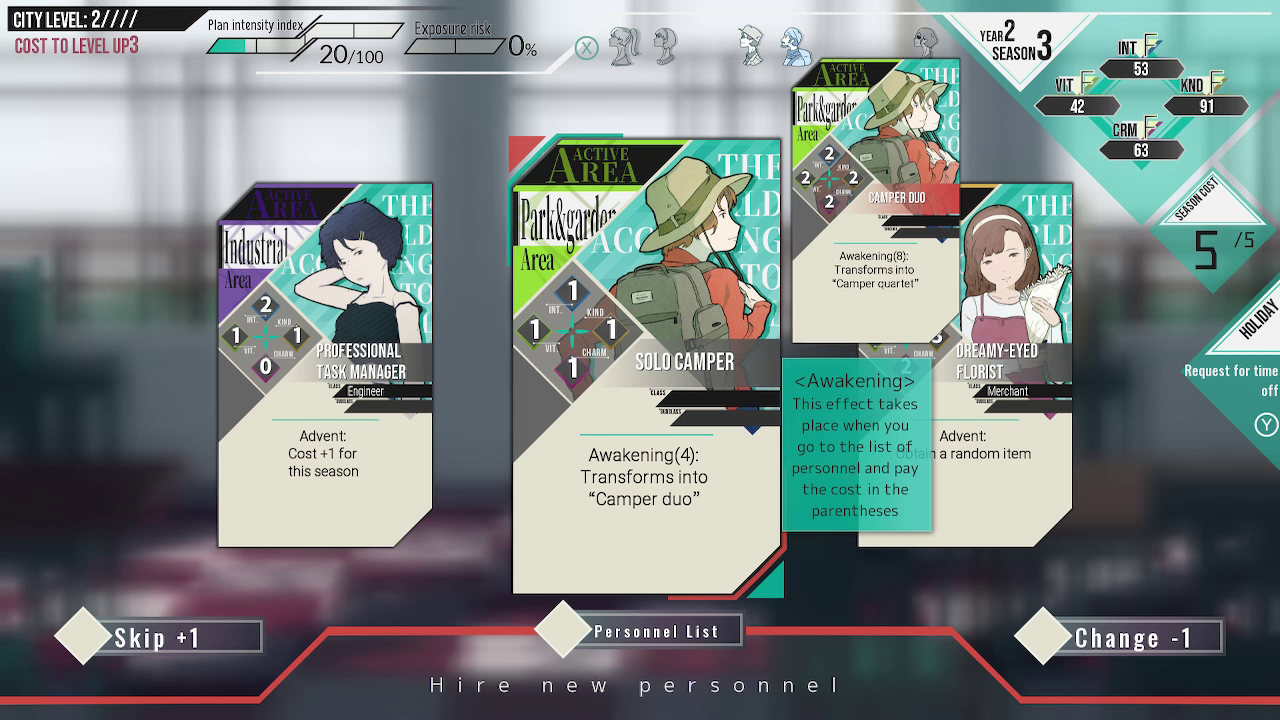
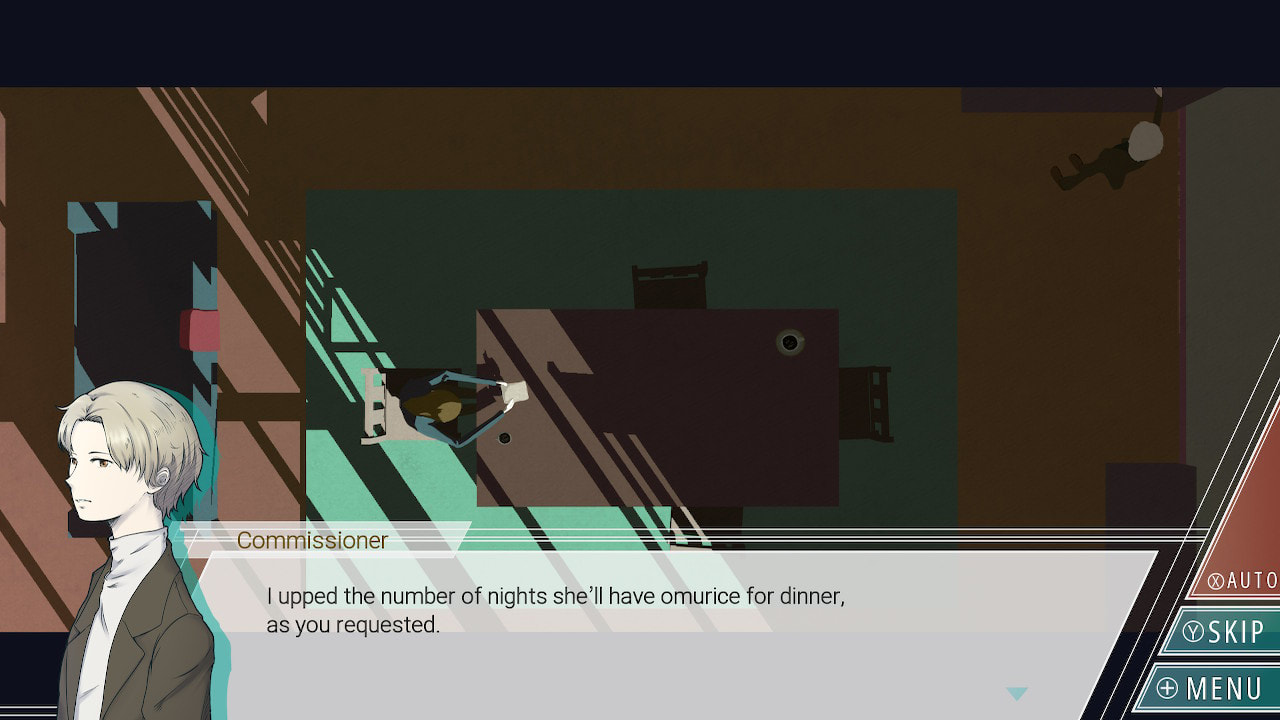
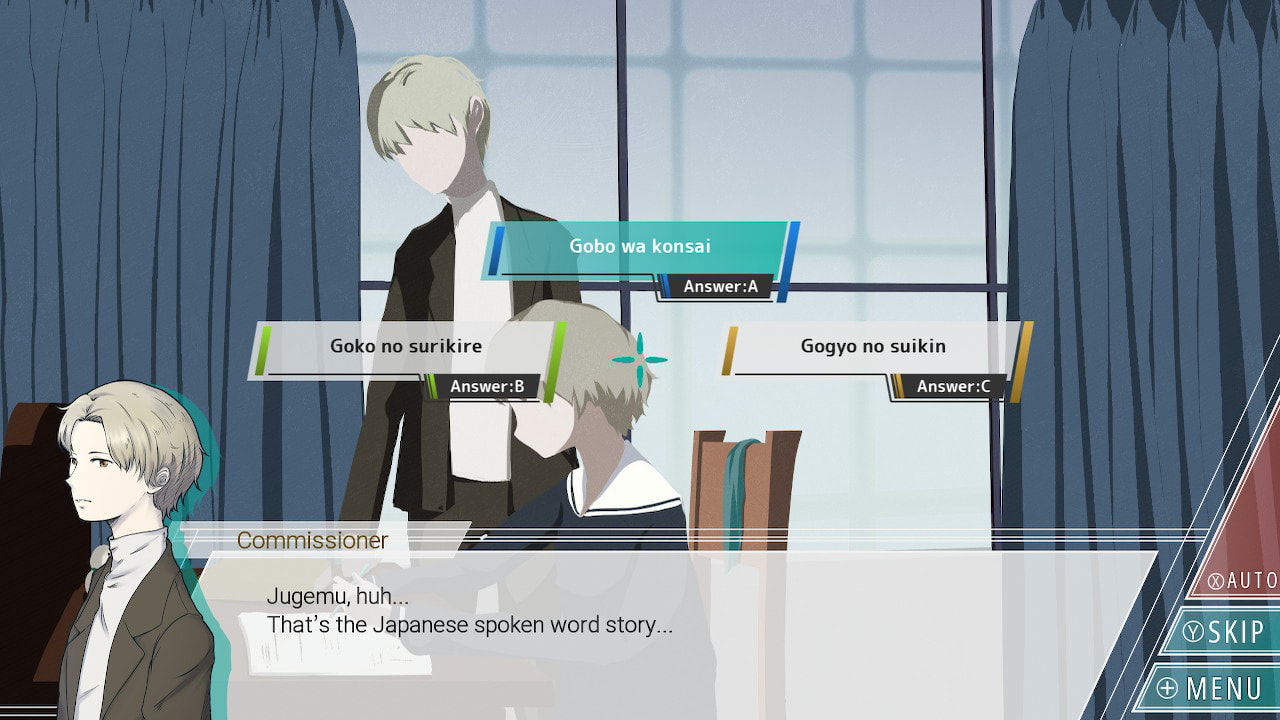


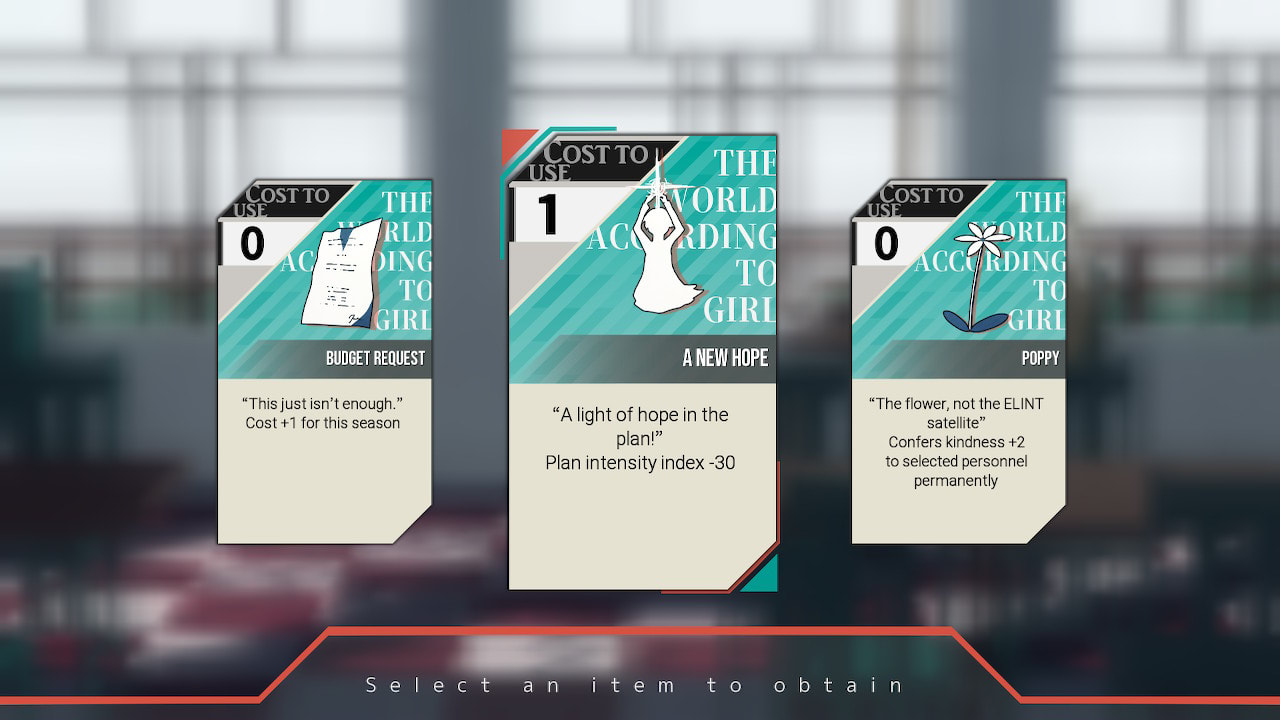

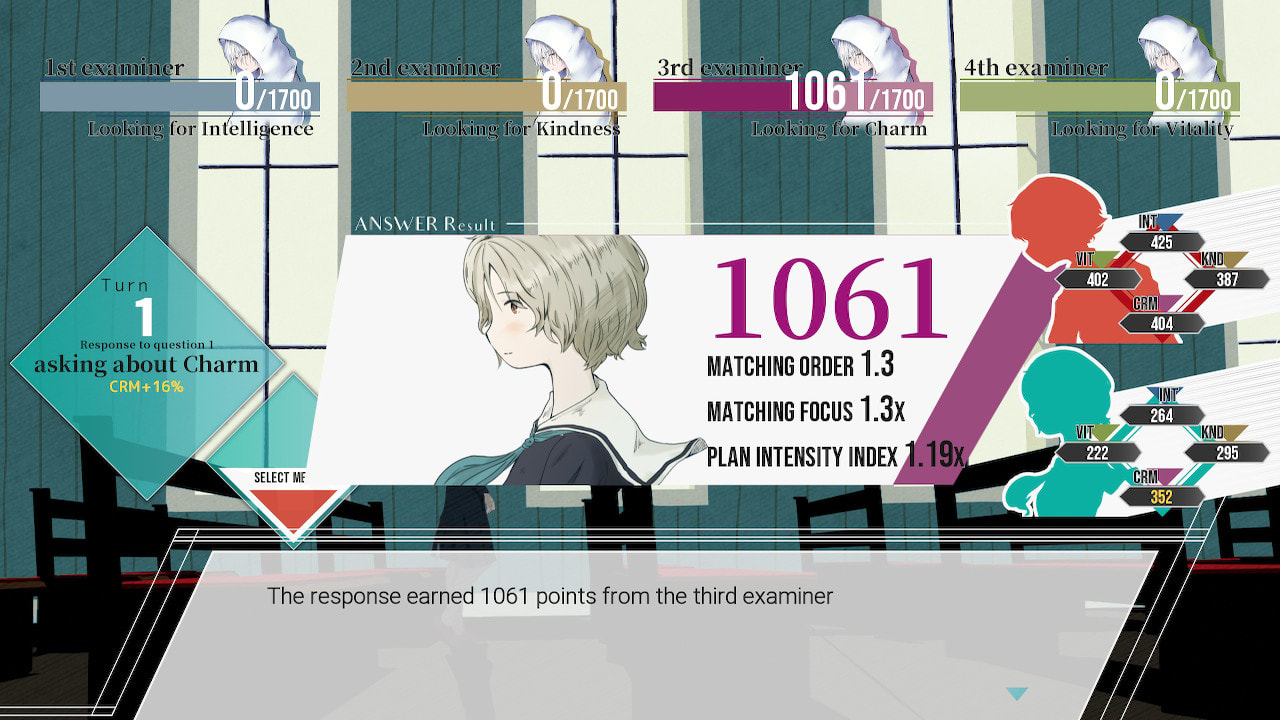
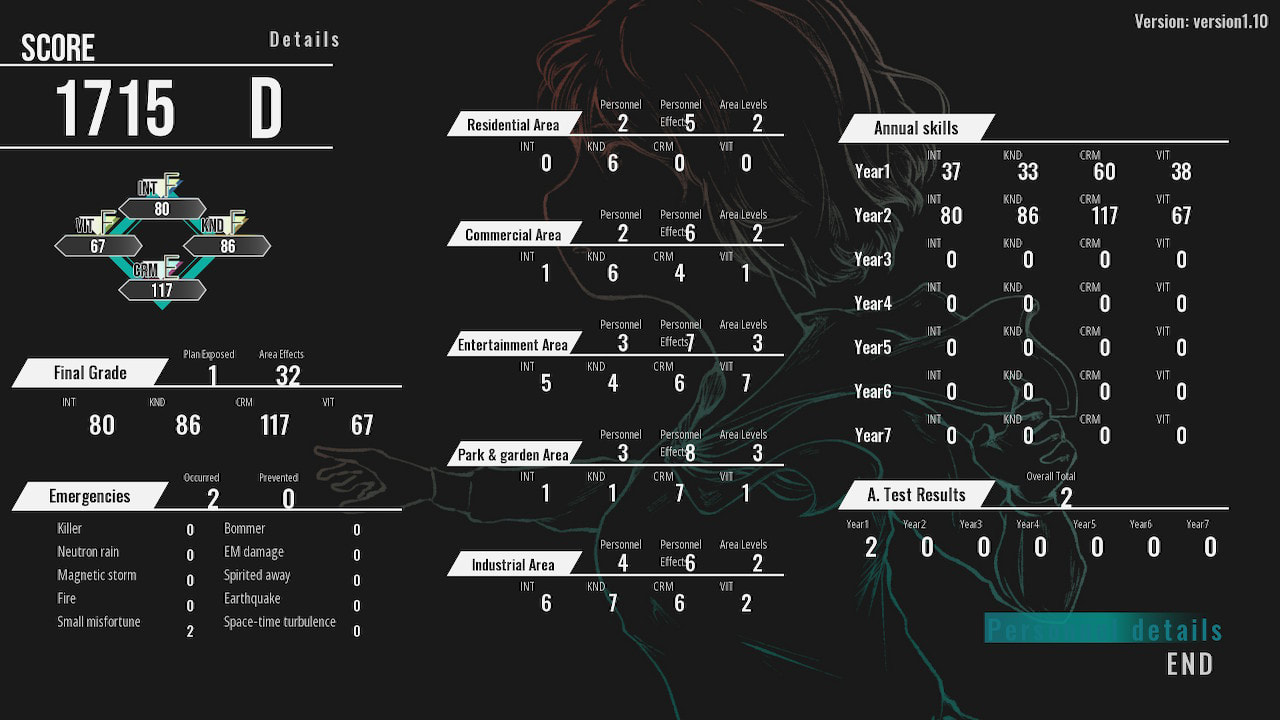
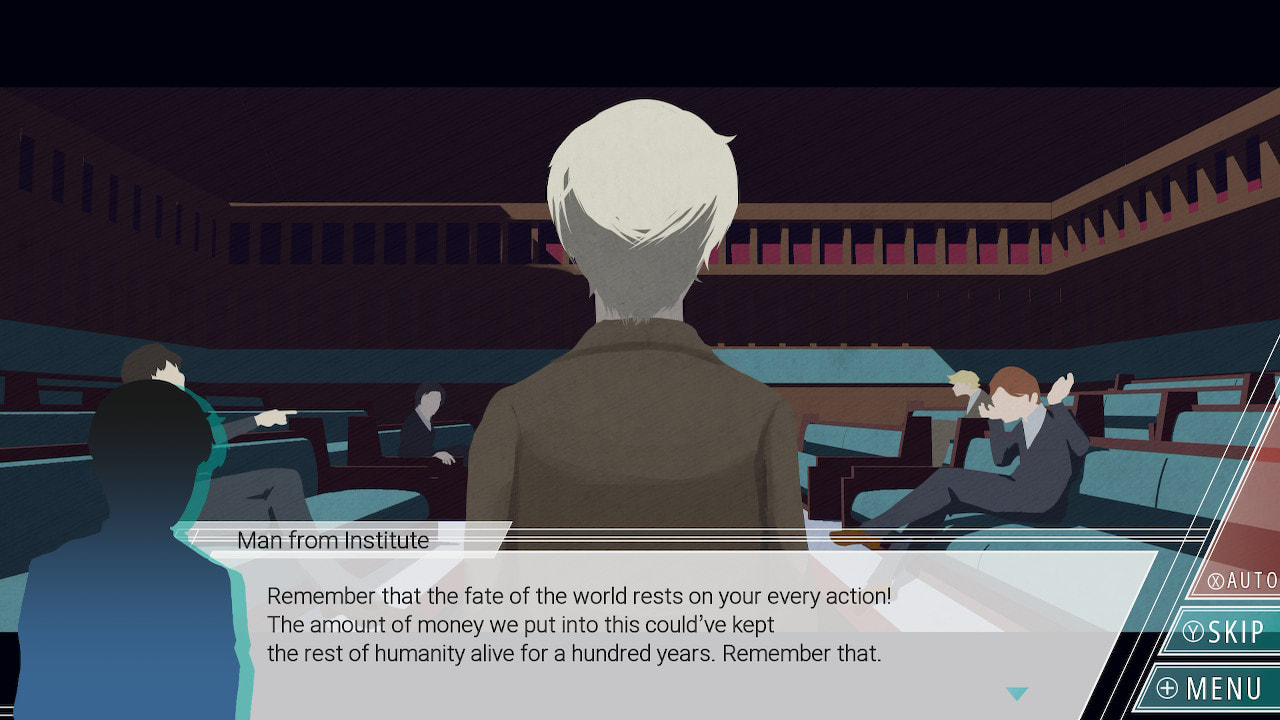
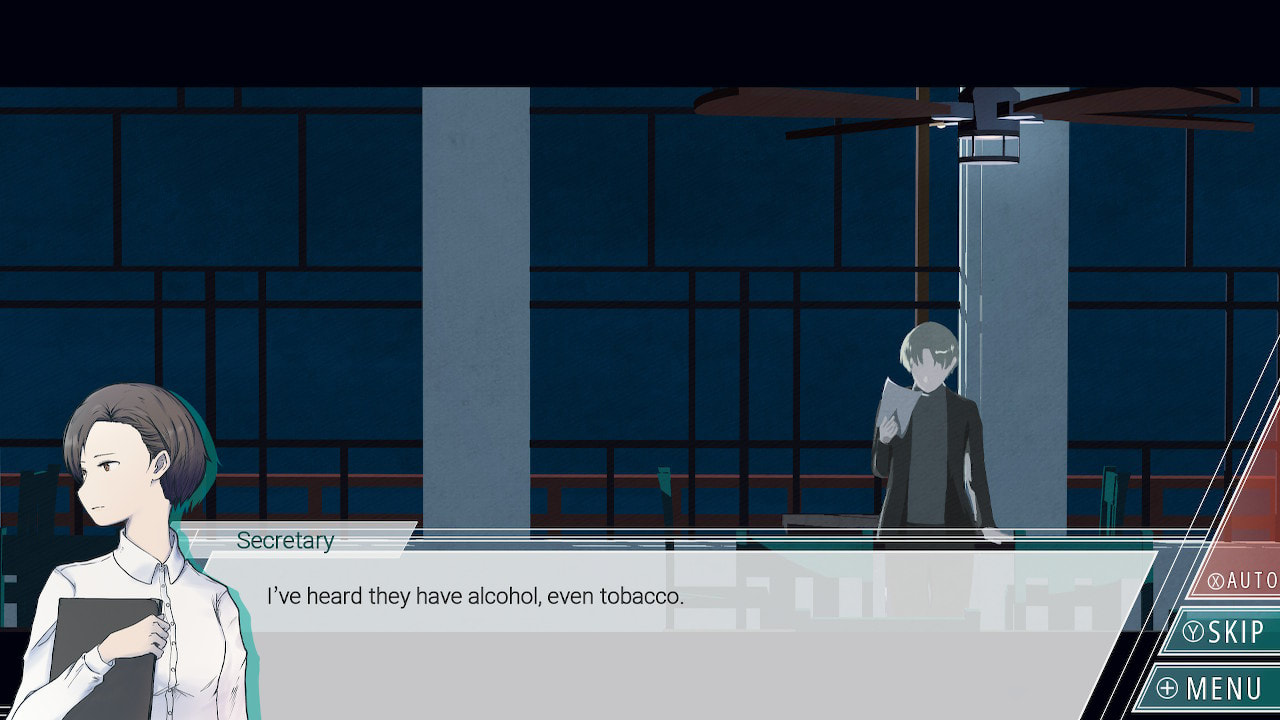

 RSS Feed
RSS Feed